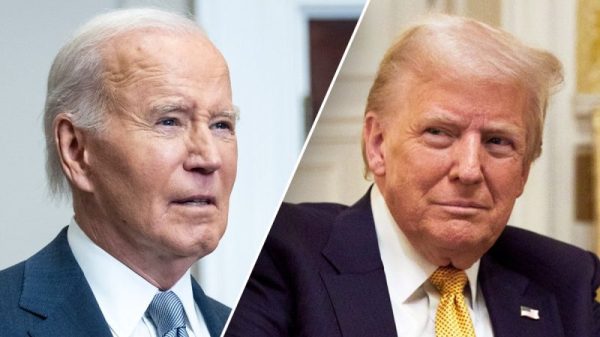Middle East Conflict Impact on Asian Currencies
The world’s geopolitical landscape has once again shifted, with the Middle East conflict taking center stage. In recent days, the region has witnessed rising tensions and violent clashes, resulting in a ripple effect that extends far beyond its borders. This article explores how the Middle East conflict has influenced the dynamics of Asian currencies, with a particular focus on the retreat of many Asian emerging market currencies, such as the Indonesian Rupiah and the Thai Baht.
Middle East Conflict and the Dollar’s Ascent
Most Asian emerging market currencies experienced a retreat on Monday, largely due to the strengthening of the US dollar. This abrupt change in currency values can be attributed to the uncertainty surrounding the weekend’s conflict in the Middle East. Notably, this conflict has led to an increase in oil prices, further complicating the economic landscape. Simultaneously, strong US job data has bolstered the prospect of higher interest rates, making the dollar an attractive choice for investors.
Middle Eastern War and its Impact on Asian Economies
The currencies of net oil importers, like Indonesia and Thailand, faced significant devaluation. The Indonesian Rupiah and Thai Baht fell by 0.7% and 0.4%, respectively. For Indonesia, this marked the lowest Rupiah value since late December, while the Baht was on course for its worst day in a week. The driving factor behind this trend was the increased risk aversion among investors. This sentiment emerged after Israel’s offensive against the Palestinian enclave of Gaza, resulting in hundreds of casualties and marking one of the bloodiest attacks in Israel’s history. These events escalated tensions in the Middle East, causing investors to seek refuge in the US dollar.
Chinese banks are anticipated to have disbursed approximately 2.5 trillion yuan, which is equivalent to $342.63 billion, in net new yuan loans for the previous month. This projection represents a substantial increase of 84% compared to the figures recorded in August. In August, the issuance of new loans had surged significantly, almost quadrupling to reach 1.36 trillion yuan.
The Unconventional Response in Financial Markets
Surprisingly, financial markets did not react with the expected level of panic to the escalating war risks in the Middle East. Instead, the price action in response to these events suggests that oil-related consequences are being measured. Vishnu Varathan, the head of Asia economics and strategy at Mizuho Bank, noted that while the US dollar showed strength in response to the Israel-Hamas conflict, it did not lead to outright panic.
Impact on Asian Economies
The increase in political instability related to the Middle East crisis has led to a rise in oil prices exceeding $4 per barrel. Consequently, this has generated further inflationary stress for significant importers in Asia, such as India, Indonesia, and Thailand. These countries, which were already dealing with economic difficulties, now confront the additional challenge of increased energy expenses.
Thailand’s Baht had already been under pressure due to the new government’s policies, which raised concerns about a widening fiscal deficit resulting from increased spending. With the Middle East conflict exacerbating economic challenges, the Baht’s value plummeted further.
The Resilience of the United States
The US, on the other hand, appears relatively resilient amidst the global turmoil. The strong US employment report released on Friday exceeded expectations, showing the most significant increase in eight months in September. This data further supports the possibility of the Federal Reserve raising interest rates once again. Michael Wan, a senior currency analyst at MUFG Bank, observed, “Overall, on a relative basis, the United States still looks much more resilient than the rest of the world at this moment.”
The elevated US yields, combined with weaker Asian exports, contribute to the continued strength of the US dollar and the potential vulnerability of Asian currencies in the near term.
Currency Market Impact
The South Korean Won experienced a 0.6% depreciation, registering its poorest performance since September 26. Simultaneously, the Singapore Dollar and Malaysian Ringgit both saw a 0.2% decline, while the Philippine Peso exhibited a 0.3% depreciation. Conversely, the Chinese Yuan demonstrated a 0.2% improvement following its week-long holiday, although Chinese stocks declined by 0.7%.
Equity markets in Asia reflected mixed sentiments, with benchmark indexes in Thailand and Singapore falling by 0.9% and 0.2%, respectively. In contrast, equities in Kuala Lumpur and Jakarta saw a 0.2% increase.
As the Middle East conflict unfolds, its repercussions resonate across the globe. The strengthening US dollar, driven by uncertainty and increased oil prices, has left many Asian currencies vulnerable. While markets have not responded with panic, the long-term economic effects of this conflict remain uncertain. The resilience of the United States in the face of global turmoil adds to the situation’s complexity, raising questions about the future stability of Asian economies. As events continue to evolve, the Middle East conflict will continue to cast a shadow over financial markets and international relations.
The post Middle East Conflict Impact on Asian Currencies appeared first on FinanceBrokerage.


































